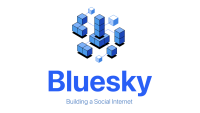One of the most compelling features of decentralized platforms like Bluesky is account portability. Unlike traditional platforms, where your account and its associated data are locked within a single ecosystem, account portability allows users to move their accounts—including their data, followers, and digital identity—seamlessly across platforms that share the same protocol. This groundbreaking concept represents a shift in power from corporations to users, redefining digital ownership in the age of decentralized technology.
What Is Account Portability?
Account portability refers to the ability to transfer your social media account and its data between platforms without losing connections or content. This feature is made possible by the Authenticated Transfer Protocol (AT Protocol), the foundation of Bluesky and similar decentralized networks.
With account portability, users can:
-
Change Platforms Without Losing Data If a user decides to leave one platform, they can move to another while retaining their posts, followers, and digital identity.
-
Own Their Identity Users maintain control over their username and associated data, independent of any single platform.
-
Avoid Platform Lock-In Portability eliminates the fear of losing access to a network of friends or followers when switching platforms.
How Does Account Portability Work?
Account portability leverages the AT Protocol to decouple user data and digital identity from individual platforms. Here’s how it works:
1. Decentralized Identity Management
Users can link their profiles to a domain they control (e.g., yourname.com), creating a portable identity. This ensures that usernames and profiles are not tied to a specific platform.
2. Data Ownership
Posts, media, and other user-generated content are stored in a decentralized manner. When a user moves to a new platform, their data can be transferred seamlessly.
3. Cross-Platform Interoperability
Platforms built on the same protocol can recognize and integrate accounts without requiring re-registration or re-building connections.
4. Authentication and Security
Cryptographic keys ensure secure authentication across platforms, maintaining account integrity during transfers.
Why Does Account Portability Matter?
Account portability addresses several pain points associated with traditional social media platforms:
1. User Freedom
It allows users to leave platforms that no longer serve their needs without the fear of losing their connections or content.
2. Competition and Innovation
By removing platform lock-in, account portability fosters competition among platforms. Users can choose the platform that best aligns with their preferences without being trapped.
3. Digital Sovereignty
Portability empowers users to take control of their online presence, ensuring their identity and data remain theirs.
4. Resilience Against Platform Shutdowns
If a platform shuts down, users can move their accounts to another without losing their digital presence.
Real-World Applications of Account Portability
Account portability can transform various aspects of the digital world:
-
Social Media Users can migrate between platforms like Bluesky and other AT Protocol-based networks while keeping their followers and content.
-
Professional Networks Platforms for professional connections could adopt portability to allow seamless transitions without losing endorsements or work history.
-
Creative Communities Artists, writers, and creators can move between platforms while maintaining ownership of their work and audience.
-
Gaming and Virtual Worlds Gamers could port their profiles, achievements, and digital assets across platforms or virtual worlds.
Challenges of Account Portability
While the concept of account portability is revolutionary, its implementation comes with challenges:
-
Technical Complexity Ensuring compatibility and smooth data transfers between platforms requires robust infrastructure and standards.
-
Data Privacy Platforms must ensure that data portability doesn’t compromise user privacy or expose sensitive information.
-
Regulation Governments may impose regulations on how user data can be transferred, creating potential hurdles.
-
Adoption Widespread adoption of account portability requires collaboration among platforms, which may be reluctant to embrace openness.
The Future of Account Portability
As more platforms adopt decentralized protocols like the AT Protocol, account portability is set to become a standard feature. In the future, we may see:
- Cross-Platform Communities: Users participating in shared communities across multiple platforms.
- Personalized Ecosystems: Individuals building their own digital environments by seamlessly integrating various platforms and tools.
- Enhanced User Trust: Portability fosters trust by demonstrating a platform's commitment to user autonomy.
Conclusion
Account portability is a game-changing feature of decentralized platforms, giving users unprecedented control over their digital identities. By allowing seamless transitions between platforms, it empowers users to prioritize their preferences and values over platform loyalty.
As platforms like Bluesky lead the way, account portability could become the cornerstone of a more equitable and user-focused digital landscape. The freedom to move without losing your digital footprint marks a significant step toward reclaiming ownership of our online lives.





